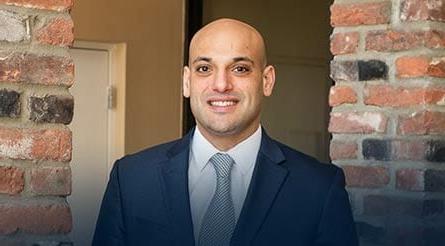Domestic Violence Lawyers
If you’ve been accused of committing domestic violence, this is not a situation to take lightly. Depending on a number of factors, including other charges, you could spend months or years in prison and pay thousands of dollars in fines if convicted. A related protective order could also deeply impact your life, including how much time you might spend with your children and your role as a parent.
A domestic violence accusation may cause criminal charges to be filed against you as well as an order of protection being issued by a court. You may face additional criminal charges if such an order is in place but you violate its terms.
Criminal charges resulting from Indiana domestic violence accusations
With the exception of the state’s domestic battery statute, Indiana law doesn’t have special criminal charges when it comes to alleged crimes where those involved are family members. Additional charges can vary on the circumstances, including harassment, stalking, criminal trespass, kidnapping and criminal confinement.
Under Indiana law, you can commit domestic battery under a number of circumstances. If you touch a family or household member in a rude, insolent or angry manner or in a rude, insolent or angry manner place any bodily fluid or waste on a family or household member, you’ve committed a domestic battery, a Class A misdemeanor (you could serve up to one year in prison and pay up to a $5,000 fine).
This offense becomes a Level 6 felony (6 months to two-and-a-half years of incarceration and a fine of up to $10,000) if one or more of the following occurred:
- The accused has a prior, unrelated conviction for domestic battery or, in another jurisdiction, was convicted of a substantially similar crime.
- The accused is at least 18 years old and committed the offense against a family or household member in the physical presence of a child less than 16 years old, knowing the child was present and might be able to see or hear the offense.
- The incident caused moderate bodily injury to a family or household member.
- The victim is a family or household member who is younger than 14 years old and the offense was committed by a person at least 18 years old.
- The victim has a mental or physical disability and the accused is supposed to take care of this family or household member.
- The victim is considered an “endangered adult” as defined by Indiana statute.
The felony penalties increase (one to thirty years of incarceration and a fine up to $10,000) if . . .
- The offense results in serious bodily injury or death to a family or household member.
- A deadly weapon is used.
- There’s bodily injury to a pregnant family or household member and the accused knew of the pregnancy.
An order of protection due to Indiana domestic violence accusations
A person claiming to be the victim of domestic violence could ask a court to issue an order of protection, and a parent or guardian could file this petition for a child who is the alleged victim. The judge may issue an order of protection “ex parte” (holding a hearing without the presence of or even notifying the accused if, based on the petition, it appears the accused has committed domestic or family violence).
This order could include provisions that the accused (respondent) must . . .
- Move out of the home,
- Stop all contact with the alleged victim, and
- Surrender the use of property such as an automobile to the petitioner, even if it’s owned by the respondent.
If there is such an order, there must be a hearing within 30 days of its being issued, and the respondent needs to be notified of the hearing. If the judge decides afterward that an order of protection is necessary to protect the petitioner from a credible threat of violence, it may issue another order that lasts for up to two years.
The order could contain the provisions found in the ex parte order as well as the following:
- Creating or denying the respondent visitation time with children of the petitioner and respondent,
- Requiring the respondent to pay for the petitioner’s expenses, including those for counseling or medical care, and,
- Prohibiting the respondent from possessing firearms.
How Church, Langdon, Lopp, Banet Law can help those facing Indiana domestic violence accusations
In cases involving domestic violence, both the accuser and the accused have legal rights. Our experienced New Albany criminal defense attorneys and Louisville criminal defense lawyers have the skills and knowledge needed to ensure that our clients get compassionate, effective representation when they’ve been arrested or charged with domestic violence.
To get more information and explore your options, contact Church, Langdon, Lopp, Banet Law today by calling us or filling out our online form. The initial consultation is free, so you have nothing to lose. Whatever the specifics of your case, we will be relentless in fighting for you.

Attorney Marc Tawfik
Marc is a Kentucky native, having lived and worked in the state the majority of his life. He is a licensed attorney in Kentucky and Indiana, and his focus is on trial work, including civil litigation and criminal defense. He has represented a wide variety of clients, and he is committed to putting his clients’ needs first. [ Attorney Bio ]




